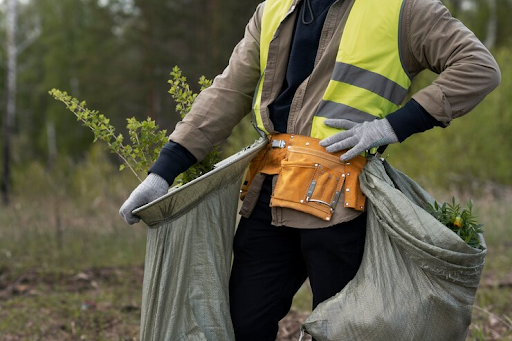Effective waste disposal is more than just discarding trash; it’s about responsibly managing resources while minimizing environmental harm. In today’s world, where sustainability is paramount, optimizing waste disposal practices is crucial. By integrating innovative solutions and mindful practices, businesses and communities can significantly reduce their ecological footprint. This article explores key strategies and technologies aimed at enhancing waste disposal efficiency while mitigating environmental impact.
The Importance of Responsible Waste Disposal
Responsible waste disposal is essential for safeguarding our environment and promoting sustainable development. Improper waste management can lead to pollution, habitat destruction, and threats to wildlife. By adopting conscientious disposal practices, communities and businesses alike contribute to preserving natural resources and promoting a cleaner, healthier planet.
Innovations in Disposal Bin Technology
Innovative disposal bin technologies are revolutionizing waste management practices, offering smarter, more efficient solutions. From sensor-equipped bins that optimize collection routes to solar-powered compactors that reduce overflow and odors, these advancements are enhancing operational efficiency while minimizing environmental impact.
Bird Control Measures in Waste Management Facilities
Effective bird control is crucial in waste management facilities to prevent environmental contamination and ensure operational safety. Birds can pose significant challenges by scavenging waste, spreading litter, and compromising hygiene standards. Implementing bird control measures such as bird spikes, nets, and repellents helps mitigate these risks, protecting both the environment and public health.
Sustainable Waste Disposal Practices
Sustainability lies at the heart of modern waste disposal practices. Adopting sustainable solutions not only reduces environmental impact but also promotes resource efficiency and cost-effectiveness. Practices such as recycling, composting, and waste-to-energy initiatives are integral to achieving a circular economy where materials are reused, repurposed, or regenerated.
Role of Technology in Waste Sorting
Technological advancements play a pivotal role in optimizing waste sorting processes. Automated sorting systems equipped with artificial intelligence (AI) and machine learning algorithms streamline the segregation of recyclables, organic waste, and hazardous materials. These systems enhance accuracy, efficiency, and throughput, thereby maximizing resource recovery and minimizing landfill waste.
Community Engagement in Waste Reduction
Community engagement is fundamental to the success of waste reduction initiatives. Educating residents and businesses about recycling practices, composting techniques, and proper waste disposal habits fosters a culture of environmental stewardship. Collaborative efforts between local authorities, businesses, and community organizations empower individuals to make informed choices that contribute to a cleaner, greener future.
Challenges in Waste Disposal Management
Despite advancements, waste disposal management faces challenges that require innovative solutions. Issues such as illegal dumping, inadequate infrastructure, and public apathy toward recycling pose barriers to effective waste management. Addressing these challenges demands coordinated efforts, policy reforms, and investment in sustainable technologies and infrastructure.
Future Trends in Waste Disposal
The future of waste disposal promises continued innovation and evolution toward more sustainable practices. Emerging trends such as decentralized waste processing units, blockchain-enabled waste tracking systems, and biodegradable packaging materials are reshaping the waste management landscape. These advancements aim to minimize waste generation, enhance resource recovery, and promote environmental resilience.
Conclusion
Optimizing waste disposal practices is imperative for safeguarding our planet’s health and sustainability. By embracing technological innovations, implementing effective bird control measures, promoting sustainable practices, and fostering community engagement, businesses and communities can minimize environmental impact while maximizing resource efficiency. Together, we can pave the way toward a cleaner, greener future for generations to come.

